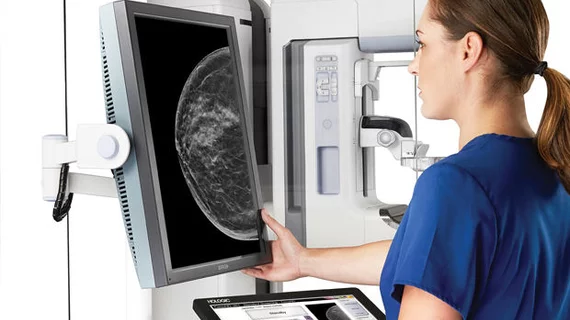Google Health partners with iCAD in commercial AI imaging push
A new partnership between Google Health and global medical technology company iCAD aims to enhance breast cancer AI solutions for mammography.
The partnership will leverage Google Health’s AI technology and integrate it with iCAD’s portfolio of breast imaging AI solutions through a strategic development and commercialization agreement. The deal is the first commercial partnership for Google Health to introduce its breast imaging AI into clinical practice.
“Google Health’s AI tech could be used to make healthcare more available, more accessible, more accurate,” Greg Corrado, PhD, head of health AI, Google, said in a statement. “But effecting change like this will only be possible if we work closely with forward-looking partners, those with a deep tradition of pioneering innovation and the market experience and wherewithal to put innovations into real workflows. The entire ecosystem needs to work together to advance healthcare solutions that truly better serve patients, doctors, and health systems.”
Google has licensed its AI technology for breast cancer and personalized risk assessment to iCAD under terms of the agreement. ICAD plans to use the technology to further its 3D and 2D AI algorithms and commercialize developed products.
ICAD’s portfolio includes technologies for breast cancer detection, density assessment and personalized short-term risk evaluation. The company will validate Google Health’s AI tech into its Breast AI Suite. ICAD also plans to leverage Google Health’s AI into its ProFound AI Risk, which the company claims is the world’s first clinical decision support tool that provides a personalized, accurate short-term breast cancer risk estimation.
“This is the only commercially available technology that can prospectively identify people who are at a high risk of being diagnosed with breast cancer before or at their next screening, using information readily available in a screening mammogram,” the company stated in a press release.
Beyond using the AI tech, iCAD will also use Google Cloud’s infrastructure as part of the deal, moving its delivery model from an on-premise suite of solutions to cloud-hosted solutions. Moving to the cloud will help expand the ability to use AI-based tools in underserved regions constrained by infrastructure challenges.
“Joining forces with Google marks a historic milestone for our company, as leveraging Google’s world-class AI and Cloud technology elevates the caliber of our market-leading breast AI technologies and may also accelerate adoption and expand access on a global scale,” said Stacey Stevens, president and CEO of iCAD. “iCAD and Google Health are united in our purpose-driven missions to elevate innovation, improve patient care and optimize outcomes for all. By combining the power of our technologies and teams, we strengthen our fight against breast cancer and positively impact the lives of women and their loved ones across the globe.”

